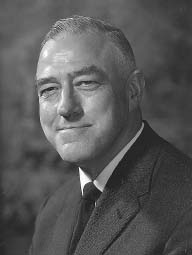Michael Woodruff
|
Sir Michael Woodruff |
|
|---|---|
 |
|
| Born |
3 April 1911 Mill Hill, London, England |
| Died | 10 March 2001 (aged 89) Edinburgh, Scotland |
| Nationality | British |
| Fields | Organ transplantation |
| Institutions | Universities of Sheffield, Aberdeen, Otago, Edinburgh |
| Alma mater | University of Melbourne |
Sir Michael Francis Addison Woodruff, FRS, FRCS (3 April 1911 – 10 March 2001) was an English surgeon and scientist principally remembered for his research into organ transplantation. Though born in London, Woodruff spent his youth in Australia, where he earned degrees in electrical engineering and medicine. Having completed his studies shortly after the outbreak of World War II, he joined the Australian Army Medical Corps, but was soon captured by Japanese forces and imprisoned in the Changi Prison Camp. While there, he devised an ingenious method of extracting nutrients from agricultural wastes to prevent malnutrition among his fellow POWs.
At the conclusion of the war, Woodruff returned to England and began a long career as an academic surgeon, mixing clinical work and research. Woodruff principally studied transplant rejection and immunosuppression. His work in these areas of transplantation biology, led Woodruff to perform the first kidney transplant in the United Kingdom, on 30 October 1960. For this and his other scientific contributions, Woodruff was elected a Fellow of the Royal Society in 1968 and made a Knight Bachelor in 1969. Although retiring from surgical work in 1976, he remained an active figure in the scientific community, researching cancer and serving on the boards of various medical and scientific organizations. He died on 10 March 2001, at the age of 89.
...
Wikipedia
